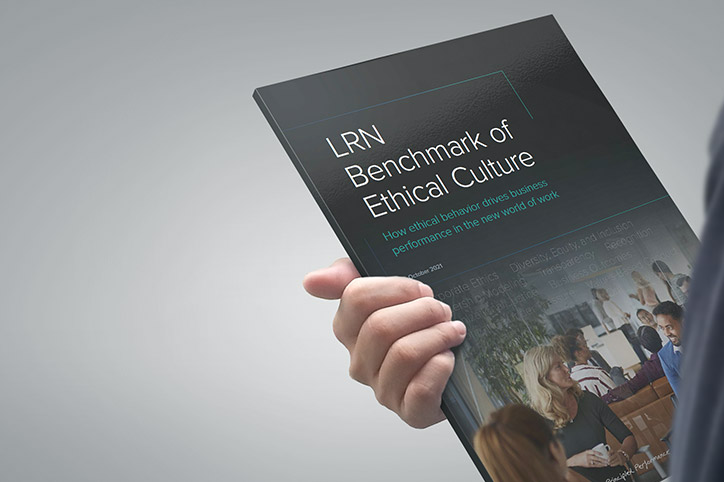If you have been staying up to date on business trends, then you will have noticed the plethora of articles detailing the latest talent crisis: The Great Resignation. Here’s a snapshot of the situation:
- “People are leaving their jobs in search of more money, more flexibility, and more happiness. Many are rethinking what work means to them, how they are valued, and how they spend their time. It's leading to a dramatic increase in resignations—a record 4 million people quit their jobs in April alone, according to the Labor Department.” – NPR, June 2021
- “Exactly half of U.S. workers describe their companies as being understaffed, and these workers are more likely to say they have recently considered quitting, according to a new CNBC|Momentive workforce survey.” – CNBC, November 2021
- “The ‘Great Resignation’ is a sort of workers’ revolution and uprising against bad bosses and tone-deaf companies that refuse to pay well and take advantage of their staff. Millions of workers voted with their feet and walked out of their jobs—many without having another position already lined up. They no longer want to feel like victims.” – Forbes, October 2021
- “The last several months have seen a tidal wave of resignations, in the U.S. and around the world.” – Harvard Business Review, September 2021
Strategic leaders know that a company is nothing without its people. Keeping top talent is central to supporting daily operations, cultivating a strong culture, and growing the business. Furthermore, there is no question that employee turnover is very expensive. Undoubtedly, there is an urgent need to invest in employee loyalty for the success of our organizations.
Addressing the Great Resignation: A focus on employee loyalty
“Employee loyalty” refers to the amount of organizational commitment that employees experience at work. There are three types of organizational commitment: affective, normative, and continuous commitment1.
While there is no wrong way to be loyal to your organization, comprehensive literature reviews show time and again that affective commitment (experiencing a positive emotional connection to your company) is the strongest predictor of employee loyalty2. This means that leaders seeking to increase employee loyalty and reduce employee turnover would benefit from creating healthier and happier workplaces, where employees feel inspired and proud to be a part of the company.
The secret to success? Creating mission- and values-driven, trustworthy, and inclusive work cultures.
Employee loyalty is driven by trust, corporate ethics, and a sense of inclusion
Top companies with strong work cultures experience the highest levels of employee loyalty. Data from LRN’s new study, the Benchmark of Ethical Culture, demonstrates that companies with the most robust cultures experience 40% higher levels of employee loyalty in comparison to weak company cultures (see Figure 2.). The data are clear—employee loyalty matters and demands leadership attention.
3 tips to build employee loyalty
While many cultural factors will impact employee loyalty, the LRN Benchmark data reveal the top three predictors. An employee’s desire to stay with their company (see Figure 4) is best predicted by:
- A culture of purpose-driven, ethical business practices
- Trust
- A sense of belonging and inclusion
Why do these factors matter, and how can organizations unlock success to enjoy high levels of employee retention? Let’s explore the reasons why.
1) Corporate ethics: The extent to which a company is purpose-driven and ethical.
Why does this matter? In the evolving business landscape, the modern-day workforce's desires, demands, and expectations are shifting. Employees seek to work with ethical and meaningful organizations to contribute to a better world and society. Employees want to work at companies that balance business targets with a commitment to ethical behavior and clearly communicate their mission and broader role in the world.
How can you take action?
- Start with “why”: Articulate the reason you exist as an organization (your WHY) and the way that you achieve this mission (your values, your HOW).
- Set guiding principles: Leverage a powerful code of conduct to introduce and establish your culture, mission, values, and expectations for ethical conduct.
- Reinforce often: Communicate frequently about the company’s mission and values to underscore their relevance and importance and keep them top of mind.
- Walk the talk: Lead by example and ensure that ethical behavior is modeled and recognized, day in and day out.
2) Trust: The extent to which employees experience trust (multi-directional) and behaviors that foster trust.
Why does this matter? Trust is the foundation for all relationships, business or otherwise. To build close bonds in an organization, people must see each other and the organization as trustworthy. Trust is a key ingredient if you want to inspire employees and instill a sense of connection.
How can you take action?
- Operate with empathy: An essential aspect of building trust with employees is caring about their wellbeing, career goals, thoughts and ideas, and obstacles—display care and consider employees’ needs when making business decisions.
- Anchor in logic: Help employees to make sense of internal processes and decisions by providing clear rationales and being open to feedback and ideas for innovation.
- Be authentic: Create space for authenticity in the workplace and have the courage to display vulnerability, especially if you are a leader.
3) Diversity, Equity, and Inclusion (DEI): The extent to which employees feel a sense of belonging in the organization through efforts to honor diversity, ensure equitable systems, and engage in inclusion.
Why does this matter? Great teams and workplaces are composed of diverse, interesting, and talented individuals whose unique skills contribute to synergic effectiveness. If an employee is going to maintain a sense of company loyalty, they must feel seen and valued for their energy and contributions. Honoring and celebrating all types of people is critical to creating a culture of fairness and belonging.
How can you take action?
- Cultivate awareness: How well does your organization do in the area of DEI? Is your workplace diverse? Is the culture inclusive? Are systems equitable?
- Provide education: Inspire employees to make a tangible difference with empowering training opportunities grounded in deepening their understanding of DEI issues.
- Update systems: Ensure all systems for recruitment, hiring, promotion, and beyond are equitable and optimized for a diverse workplace.
- Devote time and resources: A continued and earnest investment in DEI is critical for ensuring that all employees are treated with respect, compensated fairly, and feel a sense of belonging.
The key takeaway
The three secrets to employee loyalty are corporate ethics, trust, and DEI. Take action in these three areas, and employees will want to work for you. As we face the Great Resignation, the companies that successfully retain top employees will be the ones who take a renewed focus on culture and put people first.
Download a copy of the LRN Benchmark of Ethical Culture to get full insights into company culture and its impact on ethical and business performances.







